Chronic Kidney Disease Nursing
Chronic kidney disease nursing. Chronic kidney disease just means that the kidneys are permanently damaged and now they cant do their job as well. Chronic kidney disease dlinical nurse specialist 11 Dec 2014 Chronic kidney disease CKD is a growing health concern and the majority of this patient group are being cared for in primary care. Chronic kidney disease CKD is a venerable increasing decline of the functions of kidneys.
Nursing Study Guide for Chronic Renal Failure CRF Chronic renal failure CRF also known as chronic kidney disease CKD is an irreversible long-term condition characterized by a gradual decline in kidney function. Identify the fluid and electrolyte. Nutritional restrictions on sodium potassium and protein may be necessary so the nurse must be prepared to spend time educating the patient about diet and nutrition.
Nurses practicing in a variety of inpatient and outpatient settings encounter patients at all stages of CKD. Risk for Decreased Cardiac Output. The KDIGO 2012 Clinical Practice Guideline for the Evaluation and Management of Chronic Kidney Disease provides an updated evidence-based approach to diagnosing and caring for patients with CKD.
Polaschek 2003 identifies that most of the studies that have been undertaken to explore the quality of life of patients with kidney failure have used the quantitative approach. CKD is prevalent across several patient populations and NPs are in an ideal position to facilitate evidence-based care regarding these patients. Over time it can lead to end-stage renal failure ESRF which will require the need for dialysis or a kidney transplant.
Below are 17 nursing care plans NCP and nursing diagnosis for patients with chronic renal failure or chronic kidney disease. To understand the nursing care plan for chronic kidney disease CKD we must understand what is renal failure itself. Progressed kidney disease may lead to kidney failure which may require dialysis and lead to death.
The warning signs and symptoms build up gradually and comprise of vomiting nausea dysguesia anorexia fatigue nocturia pruritis stomatitis lassitude reduced psychological perception cramps and twitches in muscles retention of water under. Renal anemia can be the result of chronic kidney disease or kidney damage. Millions of adults in the United States have or are at risk for developing chronic kidney disease CKD.
Primary care nurses play a key role in ensuring patients with CKD receive appropriate education and health maintenance. Chronic renal failure also called chronic kidney disease nursing NCLEX review lecture on the pathophysiology symptoms stages and causesChronic kidney d.
Chronic kidney disease just means that the kidneys are permanently damaged and now they cant do their job as well.
Nursing Study Guide for Chronic Renal Failure CRF Chronic renal failure CRF also known as chronic kidney disease CKD is an irreversible long-term condition characterized by a gradual decline in kidney function. Like filtering the blood and removing waste products and keeping a good balance of fluid and electrolytes. Risk for Ineffective Protection. However he adds that a few nursing studies have used qualitative methodologies in an attempt to understand the quality of life as experienced by patients on dialysis. Progressed kidney disease may lead to kidney failure which may require dialysis and lead to death. Risk for Impaired Oral Mucous Membrane. Chronic kidney disease just means that the kidneys are permanently damaged and now they cant do their job as well. Chronic kidney disease dlinical nurse specialist 11 Dec 2014 Chronic kidney disease CKD is a growing health concern and the majority of this patient group are being cared for in primary care. The warning signs and symptoms build up gradually and comprise of vomiting nausea dysguesia anorexia fatigue nocturia pruritis stomatitis lassitude reduced psychological perception cramps and twitches in muscles retention of water under.
Chronic kidney disease CKD develops slowly over time and often presents with no symptoms. Millions of adults in the United States have or are at risk for developing chronic kidney disease CKD. CKD is prevalent across several patient populations and NPs are in an ideal position to facilitate evidence-based care regarding these patients. Managing kidney disease may help to delay or prevent renal anemia from getting worse. Chronic kidney disease just means that the kidneys are permanently damaged and now they cant do their job as well. If the kidneys are damaged it can lead to some serious problems. However he adds that a few nursing studies have used qualitative methodologies in an attempt to understand the quality of life as experienced by patients on dialysis.


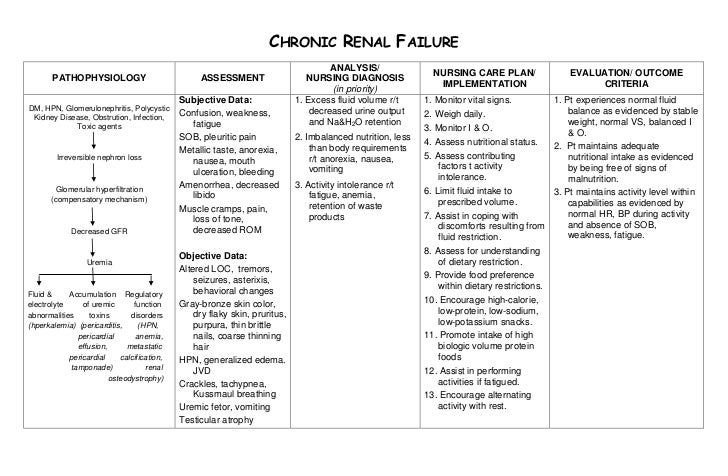


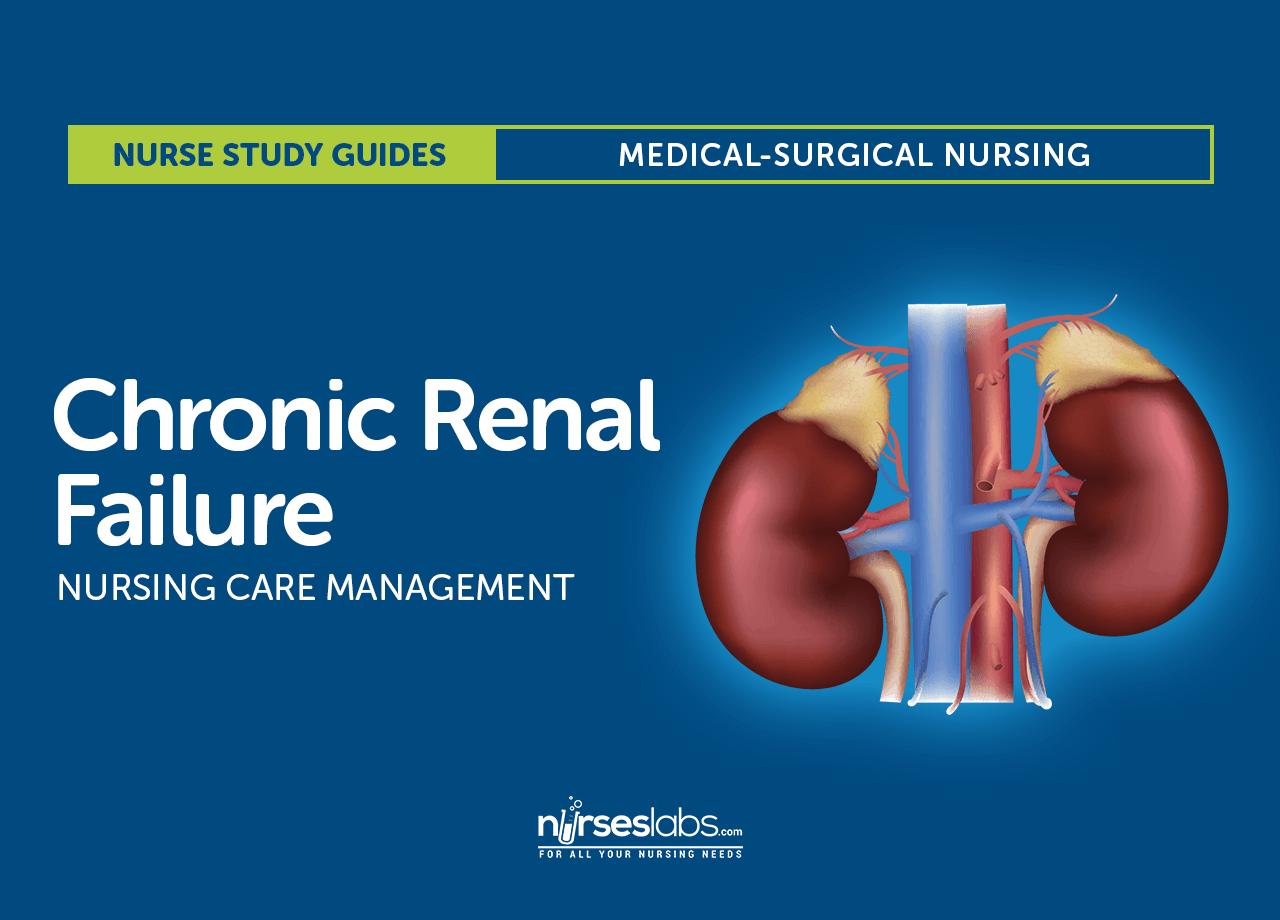





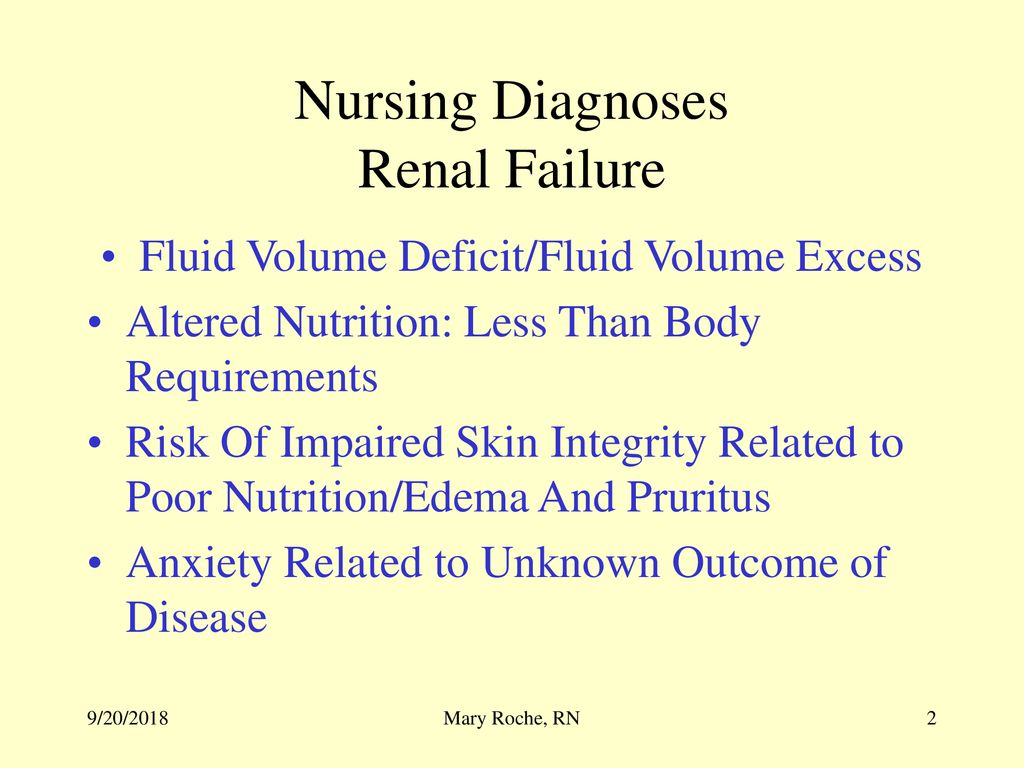




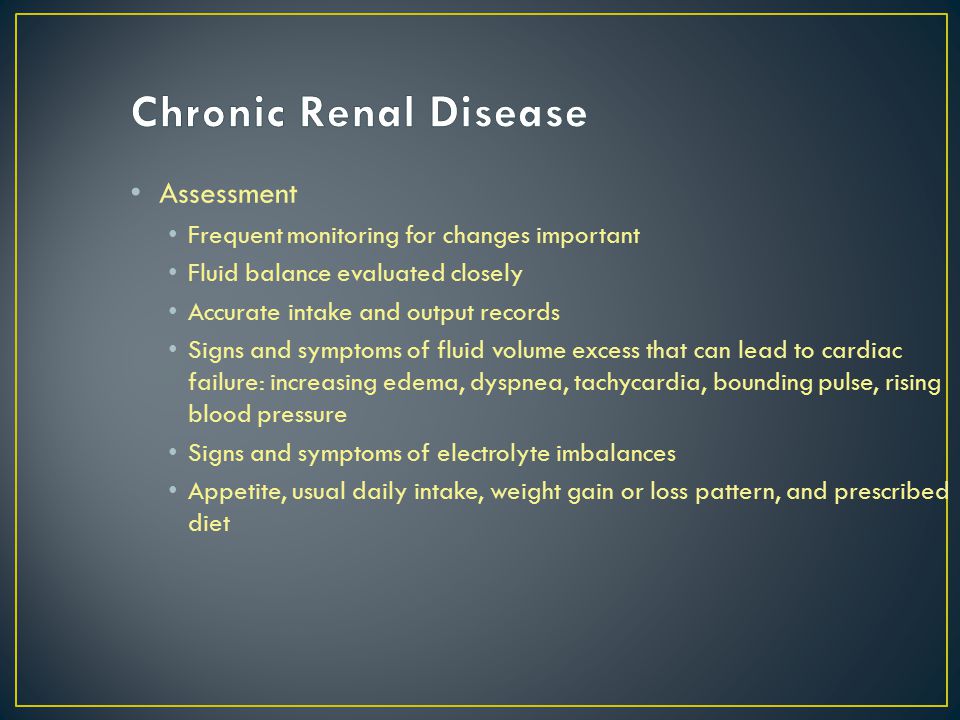











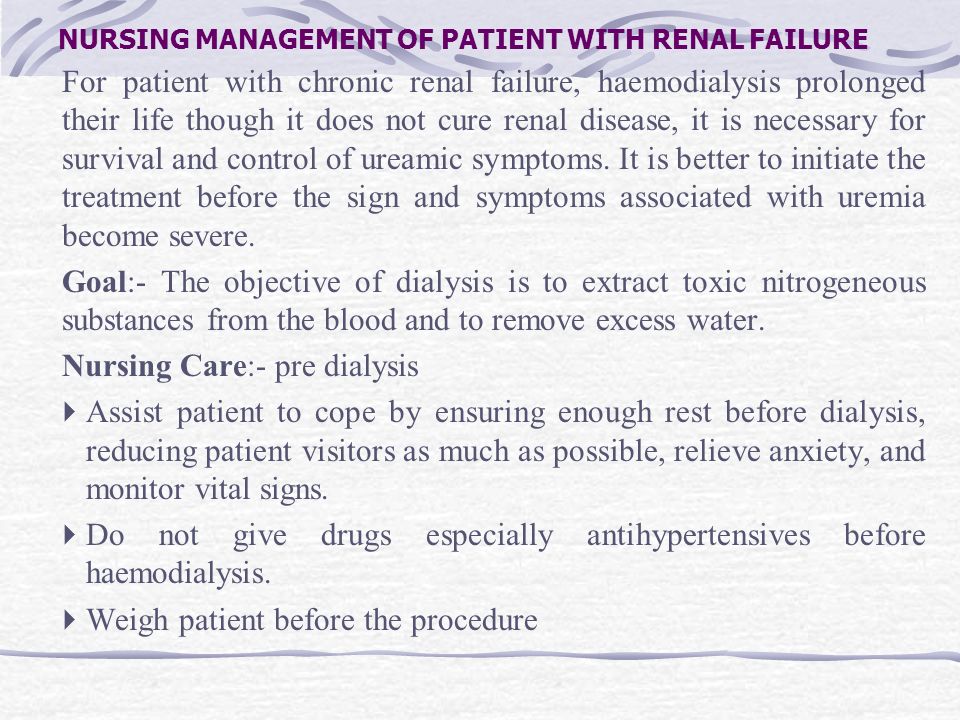





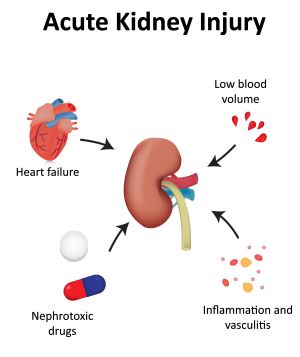


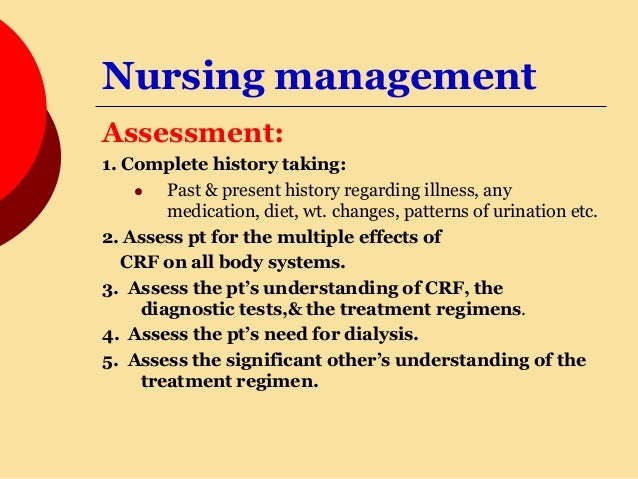

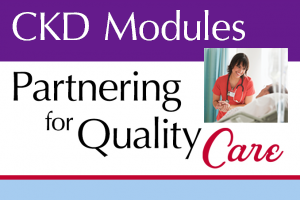
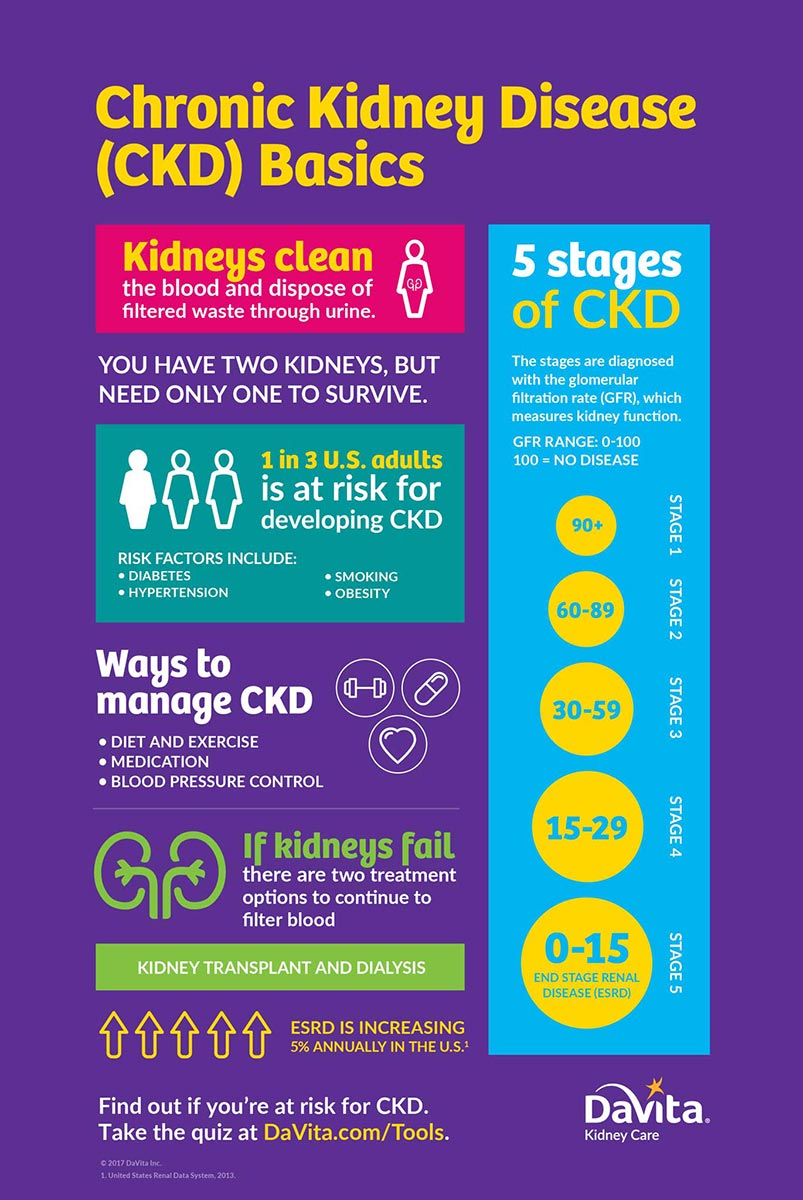





Post a Comment for "Chronic Kidney Disease Nursing"